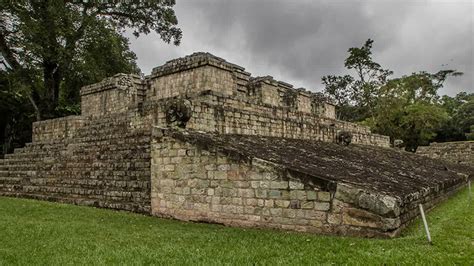Explore the history of Honduras from the Pre-Columbian era to modern times, including the Spanish conquest, colonial period, and independence.
Pre-Columbian Era
Contents
ThePre-Columbian Era in Honduras refers to the time period before the arrival of Christopher Columbus in 1502. During this time, the region was inhabited by various indigenous cultures, including the Maya and Lenca peoples. These societies had developed complex social and political structures, as well as advanced agricultural practices. The Maya, in particular, left behind impressive ruins and artifacts that provide insight into their rich cultural heritage.
One of the most significant archaeological sites in Honduras is the ancient city of Copán, which was a major center of Maya civilization. The ruins of Copán feature intricate carvings and hieroglyphic inscriptions that offer valuable clues about the beliefs, traditions, and history of the Maya people. The discovery of Copán has helped expand our understanding of the ancient indigenous societies that thrived in the region before the arrival of European colonizers.
Additionally, the Pre-Columbian Era in Honduras was characterized by trade networks, artistic expression, and technological advancements. The indigenous peoples of the region engaged in commerce with neighboring societies, exchanging goods such as cacao, ceramics, and textiles. They also created stunning works of art, including intricate pottery and sculptures, which reflect their ingenuity and creativity. Furthermore, these cultures demonstrated remarkable skill in various crafts, such as weaving and metallurgy, producing objects of practical and aesthetic value.
Overall, thePre-Columbian Era in Honduras was a time of cultural flourishing and innovation, marked by the achievements of indigenous civilizations that contributed to the richness and diversity of the country’s heritage.
Spanish Conquest
Spanish Conquest
The Spanish conquest of Honduras began in 1524 when the Spanish conquistador, Gil González Dávila, arrived in the region. He encountered resistance from the indigenous peoples, including the Mayans and the Lenca. However, despite the fierce opposition, the Spanish forces ultimately succeeded in establishing control over the territory.
During the conquest, the Spanish implemented their colonial policies, including the encomienda system, which exploited the indigenous population for labor and resources. This brutal colonization led to the decline of the indigenous communities and the introduction of Spanish culture, religion, and language in Honduras.
One of the key figures in the Spanish conquest of Honduras was the explorer, Hernán Cortés, who played a significant role in the subjugation of the indigenous peoples and the expansion of Spanish influence in the region. His campaigns and tactics were instrumental in solidifying Spain’s control over Honduras.
The lasting impact of the Spanish conquest is evident in Honduras today, as Spanish colonial architecture, traditions, and customs continue to be prominent in the country. The legacy of the conquest is complex, as it has shaped the cultural and historical identity of Honduras in profound ways.
Colonial Period
The Colonial Period in the history of Honduras began with the arrival of the Spanish in the early 16th century. This period saw the establishment of Spanish colonial rule in the region, as well as the introduction of European culture, religion, and language to the indigenous population. The Spanish conquistadors, led by Hernan Cortes, first arrived in Honduras in 1524, and quickly subjugated the local indigenous tribes, including the Maya and Lenca people, through a combination of military force and diplomacy.
During the colonial period, Honduras became an important center for Spanish colonial administration and trade, with the establishment of several key cities and ports, including Comayagua, Tegucigalpa, and Trujillo. The Spanish also introduced new agricultural techniques and crops to the region, such as sugarcane, tobacco, and cacao, which became important exports to Europe.
The Spanish colonial period in Honduras also saw the forced labor of the indigenous population, as well as the introduction of African slaves to work in the growing plantations and mines. This led to the development of a racially stratified society, with the Spanish and creole elites at the top, and the indigenous and African populations at the bottom.
Overall, the colonial period had a lasting impact on the culture, society, and economy of Honduras, and laid the foundations for the modern nation that exists today.
Independence and Republic
The independence of Honduras began on September 15, 1821, when it gained independence from Spain. Following this, Honduras became part of the First Mexican Empire under Agustín de Iturbide. However, the Honduran government soon declared independence from Mexico and the Central American provinces joined to form the United Provinces of Central America in 1823.
During this time, Honduras went through a period of political instability and struggled to maintain a stable government. In 1838, Honduras declared itself an independent republic and adopted a new constitution. The country faced many challenges in the years following its independence, including economic difficulties and conflict with neighboring countries.
The Republic of Honduras has continued to face political and social challenges in the modern era, including corruption, poverty, and violence. However, it has also made progress in areas such as education, healthcare, and infrastructure. The people of Honduras have demonstrated resilience and determination in the face of these challenges, and the country continues to strive for a better future for its citizens.
Modern Honduras
Modern Honduras has seen significant political and social changes in recent decades. The country has struggled with issues such as government corruption, poverty, and crime, but has also made strides in economic development and human rights.
In the 20th century, Honduras went through periods of political instability, with military coups and authoritarian governments. However, since the 1980s, the country has made efforts towards democratization and has seen several peaceful transitions of power.
Economically, Honduras has made progress in sectors such as agriculture, manufacturing, and tourism. The government has also implemented policies to attract foreign investment and promote trade, contributing to the country’s economic growth.
Socially, Honduras continues to face challenges such as poverty, inequality, and violence. Efforts have been made to improve healthcare, education, and human rights, but there is still work to be done in addressing these issues.












